By Rick VanSickle
In this Niagara Wine Report, we focus our attention on the Vintages release this Saturday with a cool Bachelder Pinot Noir, never released before, from the Lowrey Vineyard you just might to get your hands on.
Also in the report, we have news on the 2022 Grape King, the evolving culinary/drinks program at Niagara College, a new wine from Fourth Wall Wines, and Vintages highlights featuring Niagara wines from Thomas Bachelder, Le Clos Jordanne, Henry of Pelham and Featherstone. But first …
Froese named 2022 Grape King
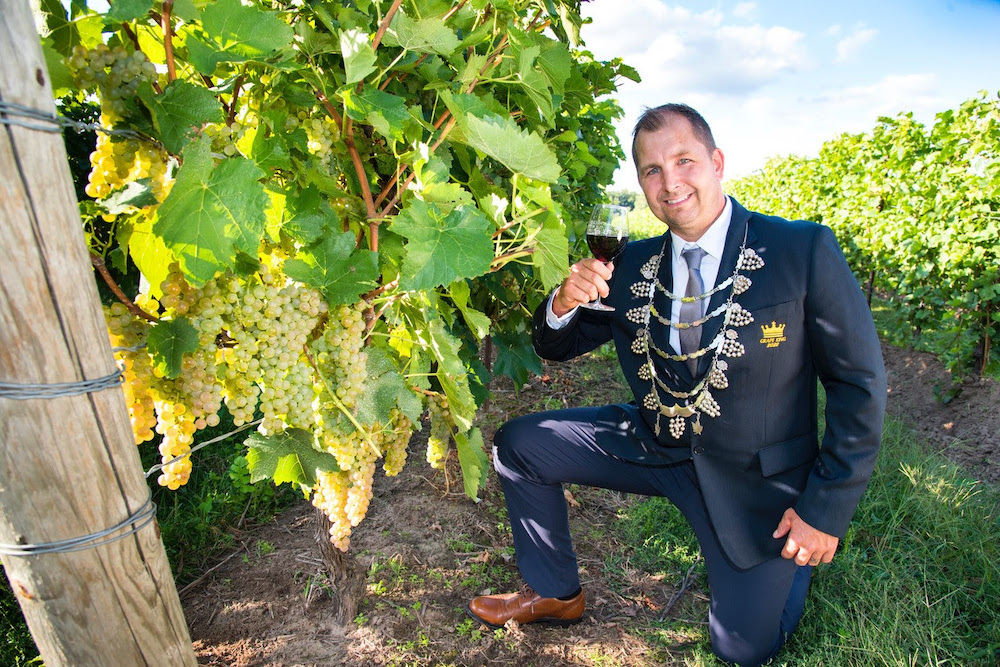
Ben Froese of Willow Lake Ventures Inc. in Niagara-on-the-Lake has been chosen as the 2022 Grape King by the Grape Growers of Ontario.
“As we celebrate our 75th anniversary of representing growers across the province, we are delighted to have Ben, a third-generation grower, selected as 2022 Grape King,” said Debbie Zimmerman, CEO of the Grape Growers of Ontario. “Ben is a dedicated grower who believes that great wine starts in the vineyard,” added Grape Growers of Ontario chair, Matthias Oppenlaender. “The annual crowning of the Grape King is the recognition of an exemplary grower. Ben will be a wonderful ambassador for Ontario’s grape growers.”
The selection of a Grape King is part of Ontario’s grape growing history and an annual tradition that dates to 1956. While the regalia has changed from a crown and cape, the King wears a chain that carries the names of all the Kings that came before.
The title of Grape King carries the distinction of being chosen based on vineyard management and knowledge of the industry, and serves as a representative for Ontario’s grape and wine industry at events across the country, starting with the Mayor’s Grape Stomp held on Sept.17 in Montebello Park (St. Catharines) and in the 70th annual Grande Parade on Saturday at the Niagara Grape and Wine Festival.
Froese was born and raised on a tender fruit farm in Niagara-on-the-Lake. His father passed away tragically when he was in his late teens. Froese graduated Niagara College with a four-year business degree, and then travelled to New Zealand to accept a one-year co-op position in farming.
Returning from New Zealand, Froese chose to take over the family business at the age of 20. Willow Lake Ventures Inc. was a family farm of peaches, strawberries, and wine grapes. Froese decided to convert the entire farm into vineyards, which he has now doubled in size to 40+ hectares. As an Arterra grower for the past 20 years, he continues to grow several different varieties of wine grapes, including icewine.
Froese is married to his wife Pamela, and they have four children Hunter, James, Lucas and Tessa.
- With information provided by Grape Growers of Ontario
Change is on the menu at Niagara College

Weekly pop-ups, a Christmas market, and more ticketed dining events than ever, are among a fresh batch of culinary service offerings at Niagara College, with the launch of a new academic division.
Expanded culinary offerings
The start of NC’s Fall term marked the launch of its new Culinary, Tourism and Beverage Studies division along with a new culinary service model that transcends the traditional.
With a variety of student-led culinary initiatives based entirely on academics, the College community and the public can get a taste of what students are producing in class – whether they’re picking up a takeout meal at a pop-up event, enjoying an a la carte lunch or five-course signature dinner at an on-campus venue, sampling student creations at an event or festival, and more.
Craig Youdale, dean of Culinary, Tourism and Beverage Studies, said that changes have been discussed for several years but when the onset of the COVID-19 pandemic began to affect NC’s culinary operations more than two years ago, it became the perfect time to reimagine the future. The past two years have also created challenges for the culinary, beverage and hospitality industries, and the new model enhances the college’s ability to support recovery and growth in these key sectors of the Niagara economy.
“We had an opportunity to flip the script and create something new and better for our students, our community, and the industries we support,” said Youdale. “I think just restarting the old model would be a lost opportunity and this new student-first approach will continue to grow and develop.”
Benchmark – which had been closed since March 2020 – will transition from a traditional restaurant operation to a learning space and venue for a variety of ticketed lunch and dinner events and to support the Feed the Community program.
Weekly culinary pop-ups featuring food and products made by students in their culinary labs – from meals ready to enjoy or packaged for take-out – will become a prominent fixture of the hospitality wing lobby each Friday. Chicken/plant-based menu (today, Sept. 23); stews, soups, schnitzel, fries, and pork sandwiches (Sept. 30); salmon dinner, fish (Oct. 7); and five-course dinner (Nov. 25 and Dec. 2).
Guests can whet their appetite for ticketed student-led signature culinary events (Oct. 21 and Dec. 16), student-led dinners, Project Brew (Dec. 2002) and a Traditional Christmas Market (Nov. 26).
The division will also expand on the Feed the Community program, giving more students a chance to help those in need while ensuring that no food goes to waste from NC’s academic programs. Culinary students are preparing and packaging 300 meals per week for delivery to local food banks and shelters.
“This new model creates increased opportunities to connect students with the community through work with agencies and charities, allowing students to put the skills and knowledge gained in classes and labs to work while learning important lessons in social responsibility,” said Youdale.
Real-world experience
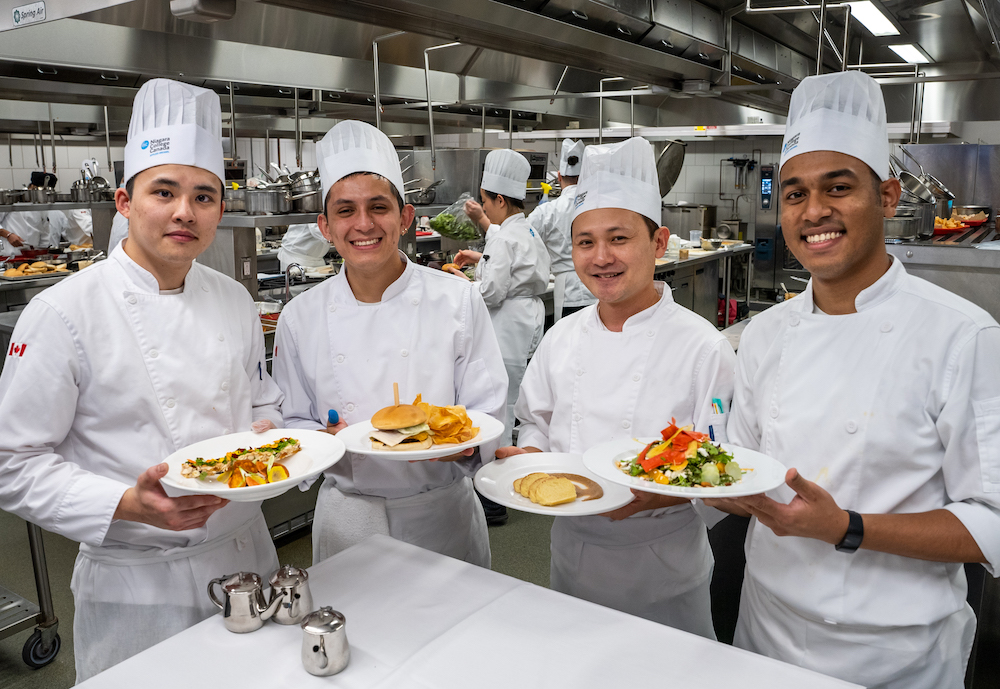
On Sept. 9, a class of second-year culinary management students prepared vegan take-home meals for NC’s first culinary pop-up of the term which drew a lineup to the first pop-up at noon that same day. Food preparation took place in a newly introduced Contemporary Food Production course that morning.
“This course has a real food service industry applied feeling, timing, standards, accuracy, pressure, and repetition; alongside guest’s comments, critics and gratification,” said chef professor Olaf Mertens. “It’s real industry standards played out within our college kitchens with real guests and many opportunities for guest feedback and interaction.”
Looking ahead
Youdale is looking forward to even more initiatives in the works for winter 2023 term, including a plan to expand culinary service offerings beyond the division’s location at the Daniel J. Patterson Campus in Niagara-on-the-Lake to the Welland Campus, and to involve more program areas from across the College in the future.
“This is only beginning,” he said. “We look forward to this new model creating not only opportunities for our students, but also a chance for the community to connect to what our students are capable of.”
New division
The new Culinary, Tourism and Beverage Studies division, includes three distinct schools of study for the first time: Culinary Arts; Wine, Beer and Spirits; and Hospitality and Tourism – replacing the former Canadian Food and Wine Institute. The new division is poised to spark new synergies between programs and fresh opportunities for students and the community.
Hospitality and Tourism professors Janet Jakosbsen and Stephen Carroll applauded the announcement of the new division and the possibilities it will bring.
“This structure is in perfect alignment with our industry stakeholders and as such we can capitalize on expanding our experiential learning opportunities and bring more value to our students, NC and our industry partners,” said Jakobsen.
“I believe, years down the road from now, NC Hospitality and Tourism School members will look back on this exciting ‘joining of forces’ as the catalyst and launch pad for new growth, prosperity, alignment and collaboration among the united NC Culinary, Tourism and Beverage Studies division,” said Carroll.
- With information provided by Niagara College
A new Gew from Fourth Wall Wines
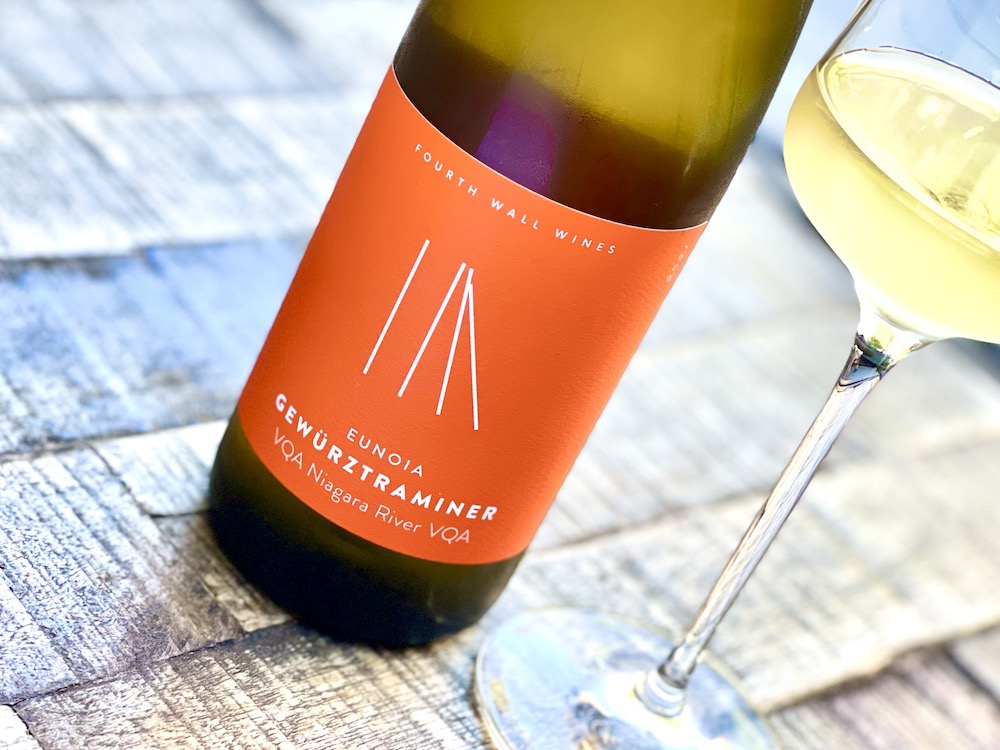
Fourth Wall Wines Eunoia Gewurztraminer 2021 ($39 at Archives Wine and Spirits, 91 points) — Fourth Wall Wines is a virtual winery owned by somm Joel Wilcox, who has a knack for sourcing great fruit from key vineyards in Niagara. This Gew has a classic profile of highly aromatic apricots, grapefruit, fresh pear, subtle ginger notes and mulled apple nuances. It’s quite rich and lush on the palate with concentrated nectarine, apricot tart, ginger and pear with lovely texture, energy, and zingy acidity on the finish. Clean and delicious!
“Hybrid” Vintages release Saturday
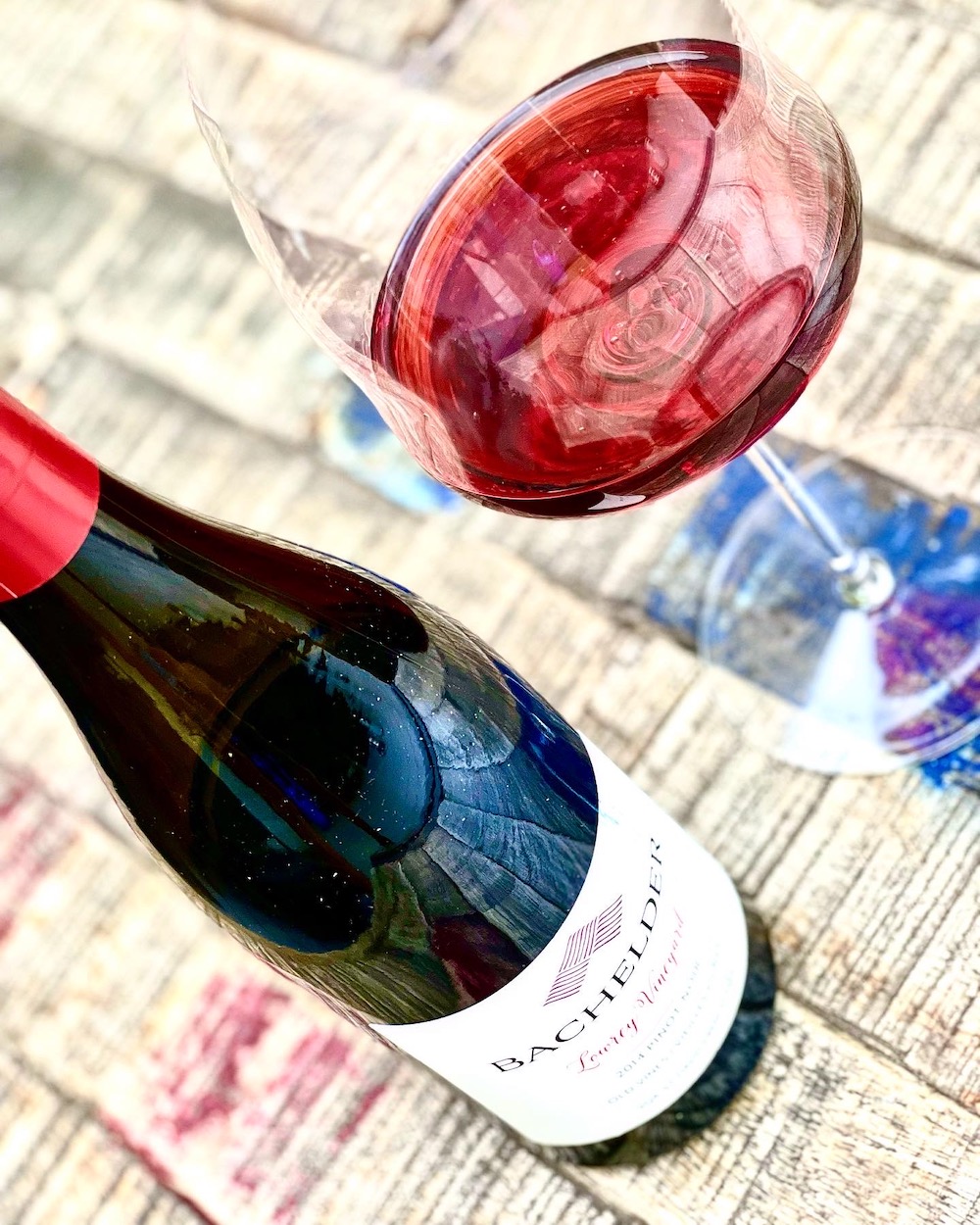
Another quirky hybrid Vintages release is coming up this Saturday, with 33 “flagship” Vintages stores getting some of the wines with other wines relegated to online “exclusives.” Only one of the recommended wines from Niagara is online only, the Lowrey Pinot from Bachelder, the rest can be found at those 33 flagship stores IF, and this is a big IF, everything goes smoothly at the LCBO. And, please note — some stores put these wines on the shelves as early as the Thursday before the release.
The online exclusive from Bachelder is the Lowrey Vineyard Old Vines Pinot Noir 2020 ($48). Here’s the thing for savvy shoppers. This is the first wine from Bachelder’s 2020 Pinot Noir collection to be released anywhere. The full release — both Pinots and Chards — will come out in November. I did not have time to taste the 2020 bottling for this report, but once I knew it was being released, I pulled out a 2014 Bachelder Lowrey Vineyard Pinot Noir Old Vines to see how this top-drawer Pinot is aging. This fascinating and historic vineyard in St. David’s has always yielded thrilling wines even in a lesser vintage such as 2014. It leans heavily on mature red berries on the nose, bramble, and fine integrated spice. It shows restraint on the palate with bright raspberry/cherry fruit, tightly woven with resolved tannins, fine oak spice with a mineral edge, lovely texture, and length through a finessed finish. I anticipate the 2020 version to be spectacular if not a little tight in the short term. Pinot lovers might want to grab some of this while you can.
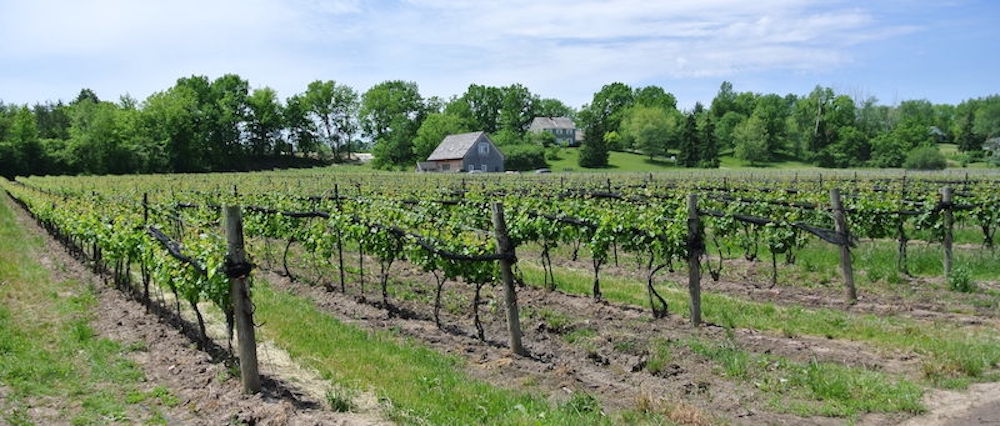
Lowrey is a vineyard that is steeped in history. Located in the St. David’s Bench sub-appellation, the 5th generation Lowrey property is a 35-acre vineyard that is the source for some of Ontario’s most prestigious wines made by accomplished winemakers.
The Lowrey family has farmed the area for five generations — everything from cherries, plums, and pears to labrusca grapes.
It was only with the current generations, Howard and Wilma Lowrey and their son Wes, that vinifera was planted in the lower part of property they purchased from Howard’s dad in the early 80s. It was the late Karl Kaiser (below), co-founder of Inniskillin, who convinced the farming family to ditch the labrusca and turn to the emerging trend of vinifera (noble) varieties.
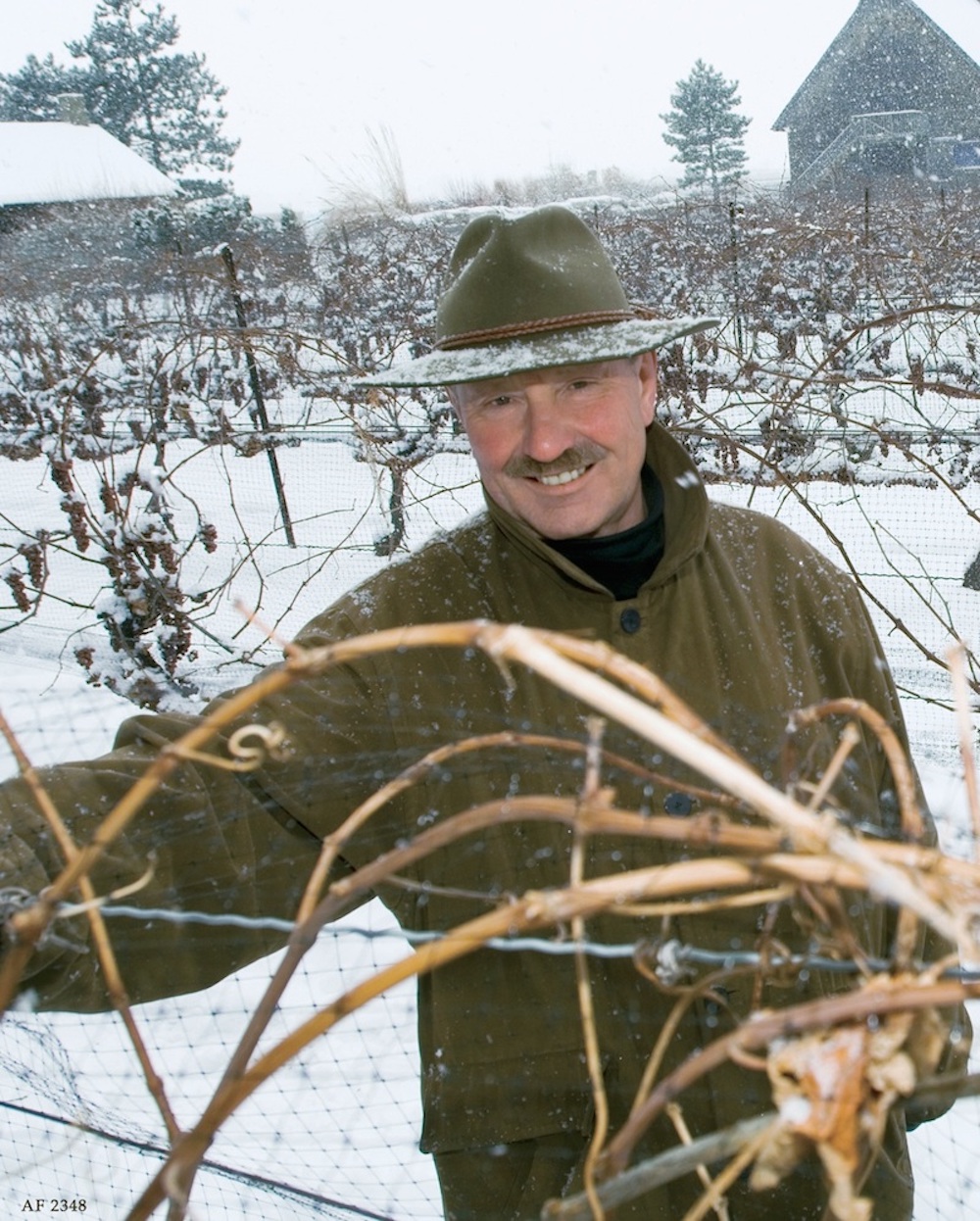
The first grapes planted were the original “Five Rows” of Pinot Noir Clone 115, made famous in 1993 by the Alliance project, the first joint venture between Canada and France with Inniskillin and Jaffelin of Cote D’Or, Burgundy. Winemakers Kaiser and Bernard Repolt collaborated from 1993 to 2007 on these VQA wines, which caused a stir back in the day for their quality, closely aligned to Burgundian Pinot and Chardonnay, and had a cult-like following.
Long-time Niagara grape grower Gerald Klose had this to say about the Lowrey Vineyard:

“Karl (Kaiser) believed in Pinot Noir here in Niagara,” he said. “The St. David’s bench area has a warm start to the spring, giving the Pinot Noir a head start. He was anxious for growers to plant … That’s why he said to (Howard) Lowrey ‘just give me five rows,’ ” said Klose. Lowrey had respect for Karl and planted the Pinot Noir. That’s how I remember it. We only had a few rows growing at Inniskillin. It was difficult at that time to convince growers to take a chance on Pinot Noir.”
Inniskillin purchased the Lowrey fruit until 1999, and today, after a few wineries have come and gone, is divided between Lowrey, Bachelder, Leaning Post, Fielding and, most recently, Adamo in Hockley Valley.
Other Niagara wines we can recommend from the release Saturday (these will appear in flagship stores):
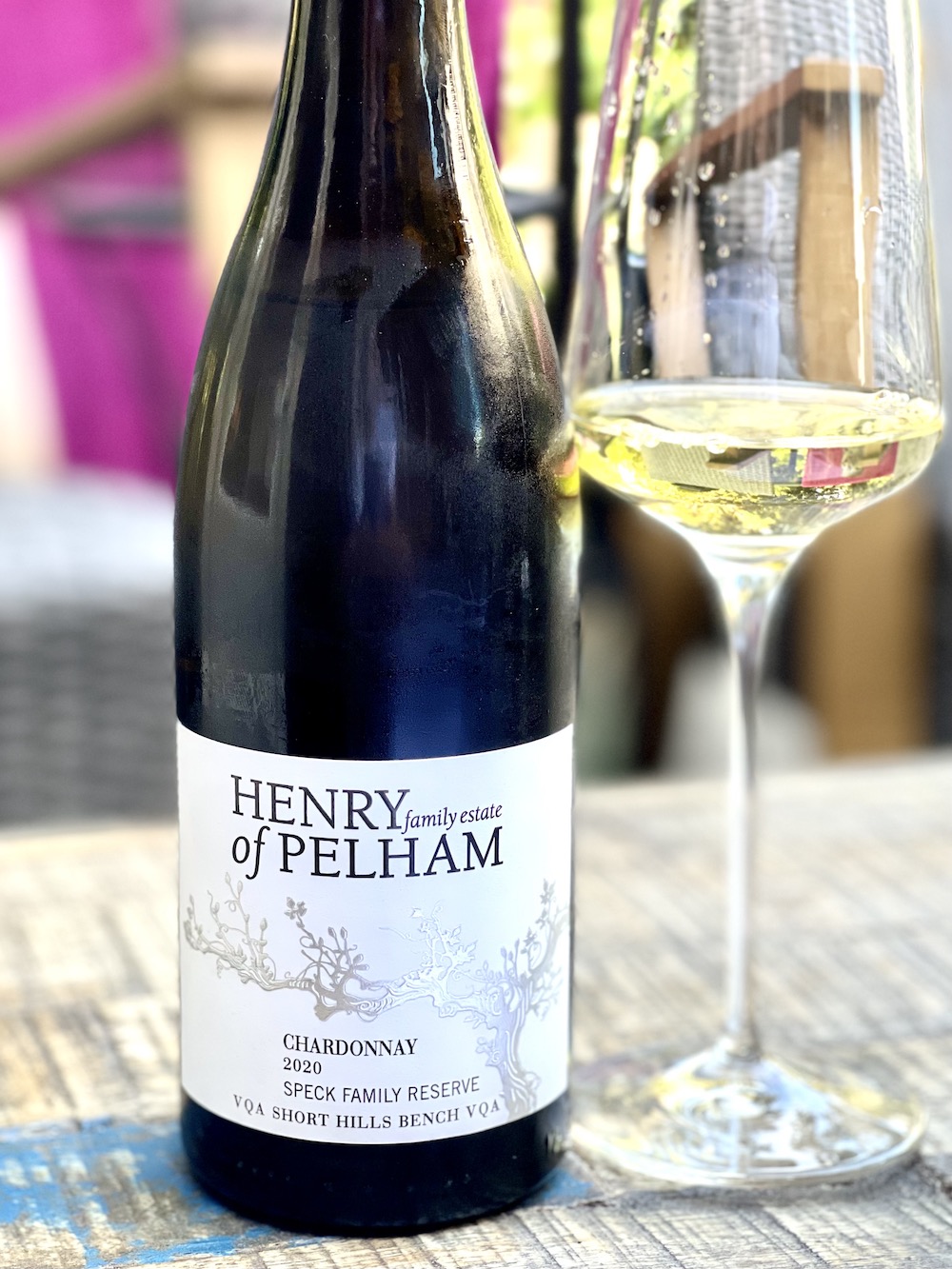
Henry of Pelham Speck Family Reserve Chardonnay 2020 ($35, 93 points) — This is the Speck brothers’ top expression of Chardonnay from the estate’s Shorts Hill Bench. It was barrel fermented and aged in oak for 10 months. Like most red and white wines from 2020 at this level, it’s quite rich and overt on the nose with ripe orchard fruits, creamy/spicy notes, and underlying lemon zest. It’s creamy and luxurious on the palate and teeming with poached pear, golden apple, elegant spice notes, toasted vanilla bean and enough citrus zest on the finish to carry this bold and expressive Chardonnay to a happy, fresh finish. Great job. Drinking really nice right now but can cellar 4-5 years.

Le Clos Jordanne Jordan Village Pinot Noir 2019 ($28, 93 points) — The Le Clos Pinot Noir Jordan Village is a blend of declassified Le Clos barrels and the Claystone Vineyard, so entirely in the Twenty Mile Bench sub-app but still labeled “Niagara Peninsula” in case winemaker Thomas Bachelder blends in Talon Ridge fruit in future bottlings. The Pinot sees about 19 months in carefully curated French oak barrels. There is this a gorgeous, perfumed note in both the Chard and Pinot, so I must assume it is part of the terroir of the Le Clos Vineyard. It adds such a beautiful dimension to both wines. In this Pinot, it complements the dark cherries, forest berries, or mulberries, as Bachelder notes, brambly raspberries, cedar plank, a mineral edge and some meaty/spicy accents. It is silky on the palate with medium+ tannins and structure, and profiles as a rich and gamy/savoury Pinot Noir with dark cherries, wild raspberries, elegant spice notes, chalky minerality and subtle cassis with a finessed and long, long finish. This will benefit from some cellaring, say 5+ years. Can’t wait to see where this Pinot Noir will go.
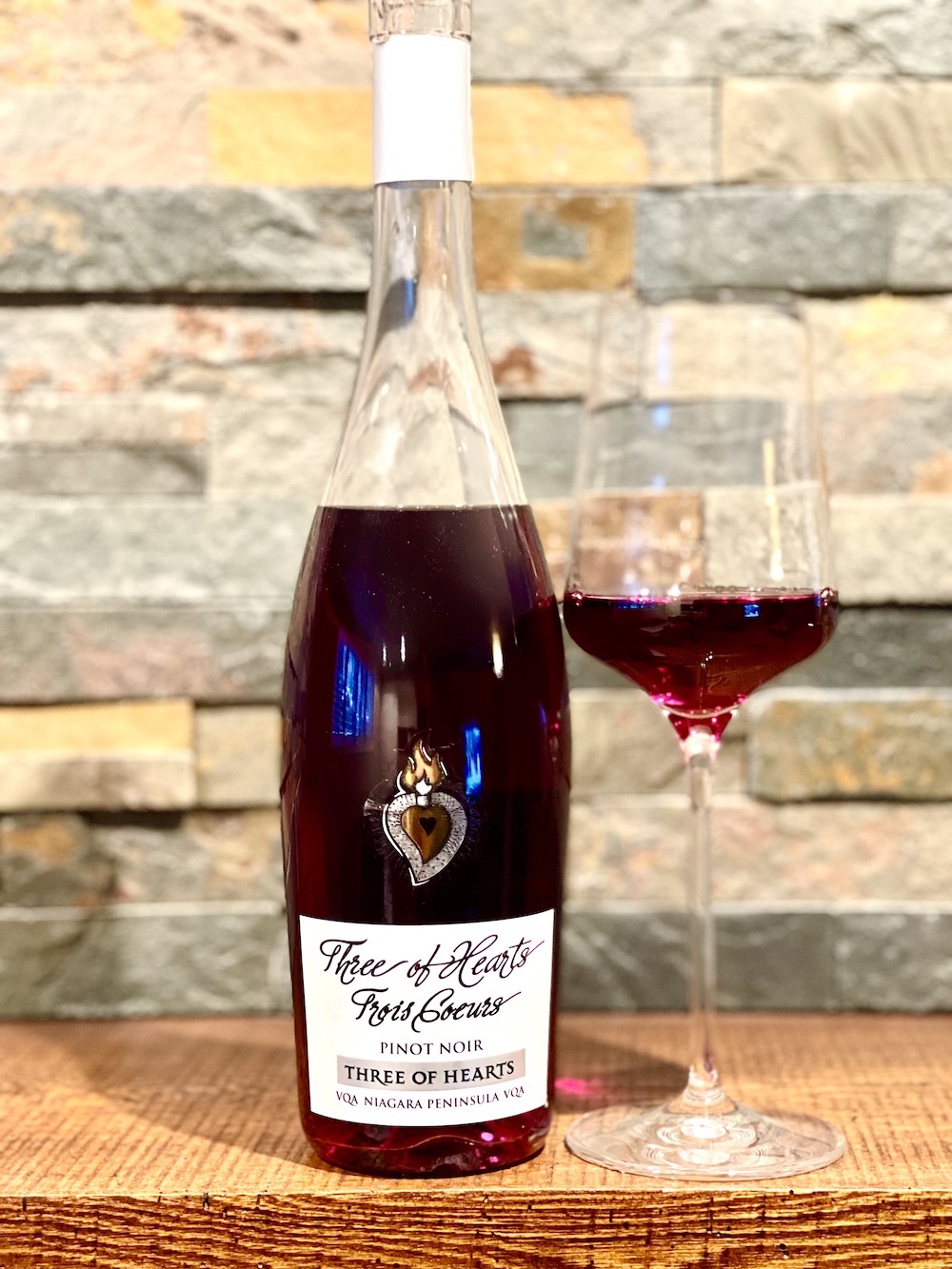
Henry of Pelham Three of Hearts Pinot Noir 2020 ($22, 90 points) — The new Pinot in the Henry of Pelham family has an earthy/brambly nose of raspberries, plums, dark cherries and light, toasty spice notes. On the palate, it shows a melange of wild red berries, earth, anise, some structured tannins, and integrated spice notes with a smooth, lifted finish.
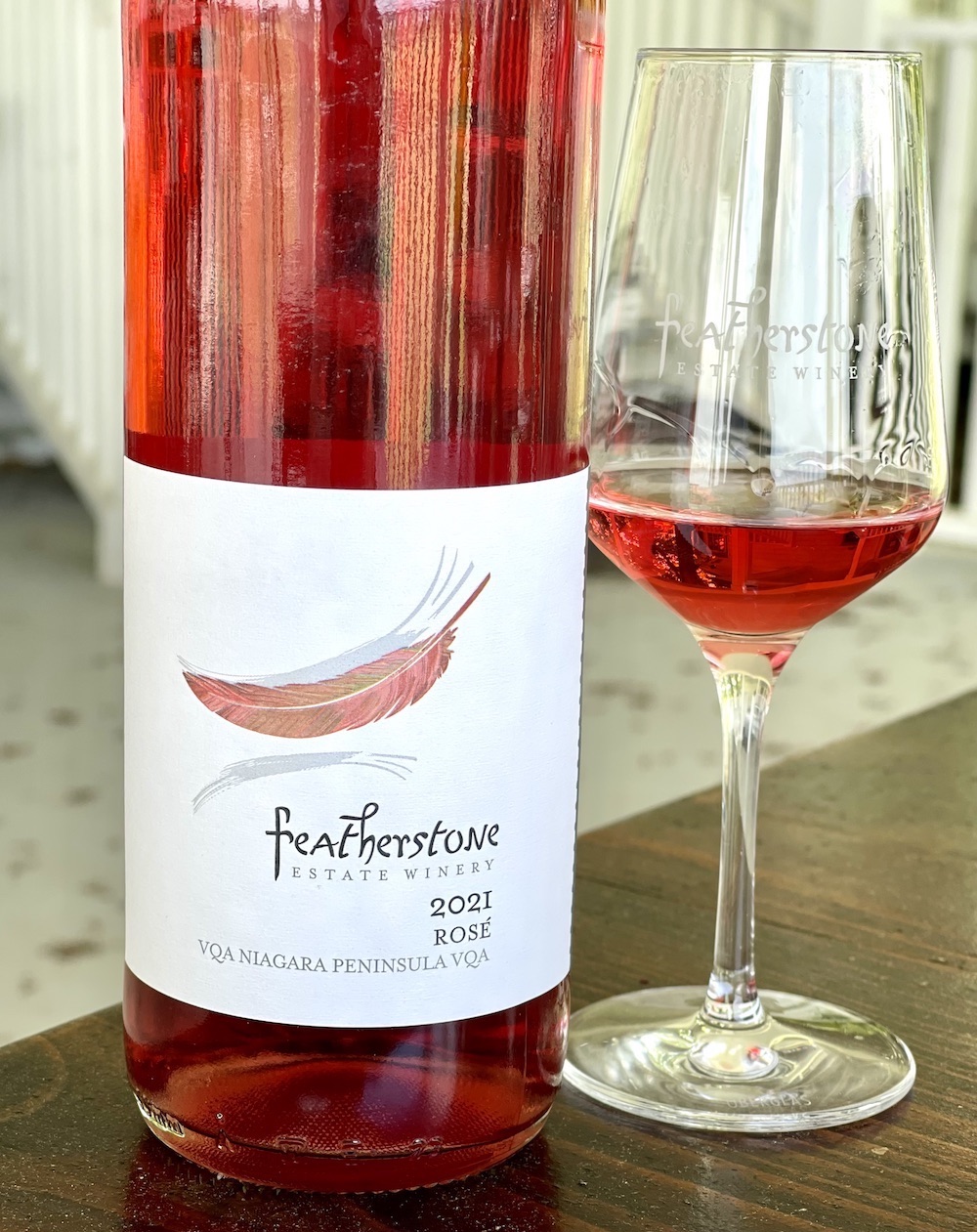
Featherstone Rosé 2021 ($16, 89 points) — Co-owner of Featherstone, Louise Engel, calls the colour of this rosé “hot-pants pink, baby!” And I can’t disagree. “We fricken sweat rosé,” she says. “We want it the look substantial, we want heft, we want a food wine.” The blend is Gamay and Cabernet Sauvignon with a nose of red berries, plums, rhubarb, and a touch of earthiness. It’s bone-dry on the palate but shows ripe black raspberries, strawberry tart, dark cherries, cranberries, and some complexity through a lifted finish.
Other Niagara wines released but not reviewed by Wines In Niagara:
• Cave Spring Estate Chardonnay Musque 2020 ($20)
• Charles Baker Ivan Vineyard Riesling 2019 ($30)
• Flat Rock Good Kharma Chardonnay 2021 ($17)
• Hidden Bench Estate Riesling 2019 ($25)
• Kew Marsanne/Viognier 2018 ($20)
• Inniskillin Niagara Estate Series Rosé 2021 ($16)







Just thought I’d mention that, while the Bachelder Pinot Noir was noted as being online only, I picked up several bottles at the LCBO [Rideau] store and there were more in stock.
Ralph … I see that now. No rhyme or reason behind what the LCBO does. They advertise as “online exclusive” yet slip into 10 stores, mostly in Toronto and one store in Ottawa. It’s mind boggling how confusing it is for consumers (and writers who try to inform confusers to the best of their ability). Glad you got some … one of the first to taste what should be a blockbuster vintage of Lowrey.